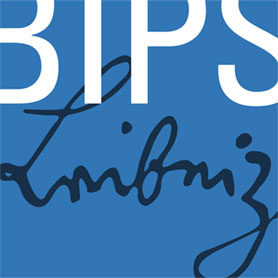ECRA Member Franziska von Mandelsloh:
“Rarely or not at all do current mHealth approaches in community-based settings focus on people of an advanced age or their family members. This is where my doctoral research project comes in.”
Even though more and more people remain active and independent for longer, the absolute number of people in need of care is growing in Germany. Along with this development there will be an increased demand on health care as well as suitable housing conditions and housing environment. Because of that, especially for Germany, a current research topic of nursing science focuses on life and care concepts in social environments and community development. At the same time, new digital support approaches are rapidly developing. On the one hand, this changes the landscape of health care, on the other hand, it offers major opportunities as well as many challenges for public health (especially the area of health promotion and prevention) as a field of scientific reflection on health care. This is the starting point for my doctoral project mHealthQ (Improvement of the health of people of an advanced age through the use of mHealth technology in the community setting), funded by the Department of Nursing and Management at the Hamburg University of Applied Sciences (HAW). I am mentored on the part of the HAW by Professor Dr. phil. Uta Gaidys and on the part of BIPS (Leibniz Institute for Prevention Research and Epidemiology) Bremen by Professor Dr. med. Hajo Zeeb.
Research plan
The aim of the study is A) to investigate effectiveness of mHealth technology for improving health for people of an advanced age in the community setting. A systematic review is used to examine the extent to which there is sufficient evidence for a causal relationship between the use of mHealth technology and health-related outcomes in the community setting for currently available mHealth models/approaches. Based on this, B) a concept for an intervention is to be developed and C) implemented as a pilot intervention to assess the feasibility in a specific neighborhood of Hamburg (the neighborhood is not fixed yet). The pilot intervention is D) evaluated according to the Standards of DGEval (German Society for Evaluation, 2016).
With such a multimodal intervention, as outlined above, the failure of a single component can jeopardize the achievement of the intended goal. Typically, the interplay of reciprocally linked components is the basis for a successful multimodal intervention. In order to account for this, the creation of a complex intervention is planned.
Contact
Franziska von Mandelsloh, M.Sc. Epidemiology, B.Sc. Health Sciences
HAW Hamburg
Departments Nursing and Management & Health Sciences
Research Associate & Lecturer:
Research- mHealthQ
(Doctoral sponsorship in the Nursing and Management Department; Cooperation: University of Bremen / BIPS Bremen & DiPH / ECRA);
Lecturing - surveillance and health reporting
Franziska.vonmandelsloh@haw-hamburg.de
T +49 40-428 75-7042
Hamburg University of Applied Sciences (HAW);
Website: haw-hamburg.de
Research plan
The aim of the study is A) to investigate effectiveness of mHealth technology for improving health for people of an advanced age in the community setting. A systematic review is used to examine the extent to which there is sufficient evidence for a causal relationship between the use of mHealth technology and health-related outcomes in the community setting for currently available mHealth models/approaches. Based on this, B) a concept for an intervention is to be developed and C) implemented as a pilot intervention to assess the feasibility in a specific neighborhood of Hamburg (the neighborhood is not fixed yet). The pilot intervention is D) evaluated according to the Standards of DGEval (German Society for Evaluation, 2016).
With such a multimodal intervention, as outlined above, the failure of a single component can jeopardize the achievement of the intended goal. Typically, the interplay of reciprocally linked components is the basis for a successful multimodal intervention. In order to account for this, the creation of a complex intervention is planned.
Contact
Franziska von Mandelsloh, M.Sc. Epidemiology, B.Sc. Health Sciences
HAW Hamburg
Departments Nursing and Management & Health Sciences
Research Associate & Lecturer:
Research- mHealthQ
(Doctoral sponsorship in the Nursing and Management Department; Cooperation: University of Bremen / BIPS Bremen & DiPH / ECRA);
Lecturing - surveillance and health reporting
Franziska.vonmandelsloh@haw-hamburg.de
T +49 40-428 75-7042
Hamburg University of Applied Sciences (HAW);
Website: haw-hamburg.de
 English (United Kingdom)
English (United Kingdom)  Deutsch (Deutschland)
Deutsch (Deutschland) 



